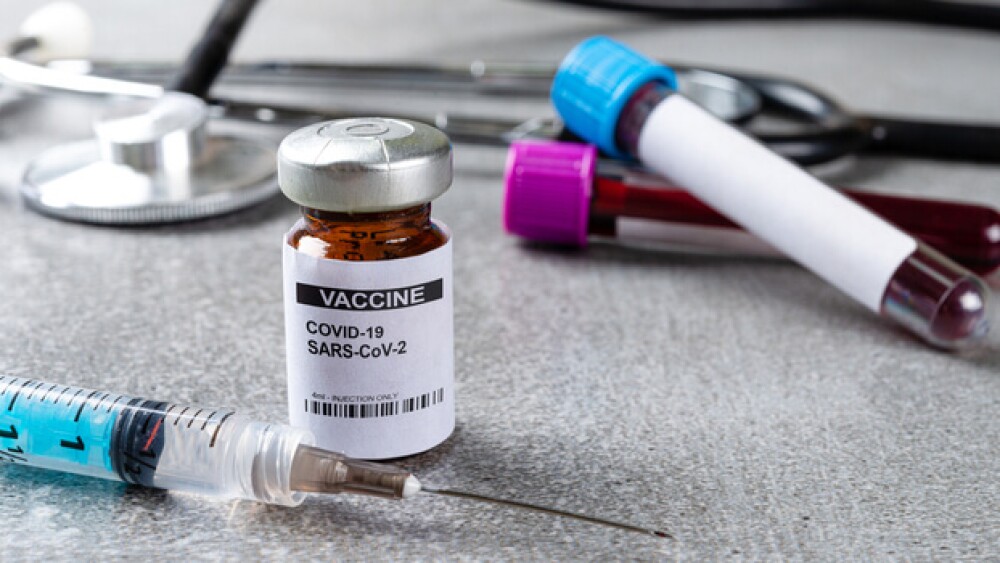The battle against COVID-19 rages on, and other therapeutics are making their way through the clinic, including monoclonal antibody treatments and antivirals. BioSpace takes a look at some of the ongoing efforts to stem the rate of infection from the virus.
The battle against COVID-19 rages on, and other therapeutics are making their way through the clinic, including monoclonal antibody treatments and antivirals. BioSpace takes a look at some of the ongoing efforts to stem the rate of infection from the virus.
Atea Pharmaceuticals
Boston-based Atea Pharmaceuticals dosed the first patient in its Phase III MORNINGSKY trial. The study is assessing AT-527 in mild or moderate COVID-19 adult and adolescent patients in an outpatient setting. AT-527 is an orally administered, direct-acting antiviral in development and derived from Atea’s purine nucleotide prodrug platform.
The clinical asset targets SARS-CoV-2 ribonucleic acid (RNA) polymerase (nsp12), a highly conserved gene responsible for both viral RNA replication and transcription. Because of this target, Atea said it is anticipated ATR-527’s antiviral activity will be effective against the emerging strains of the virus.
Many of these newer strains are the cause of infectious surges across the globe. Atea is working in collaboration with Swiss pharma giant Roche on the development of AT-527 in COVID-19.
“With the initiation of this global Phase 3 program, we are one step closer to achieving our goal of providing an easily administered oral, direct-acting antiviral in the fight against this global pandemic,” Jean-Pierre Sommadossi, founder and chief executive officer of Atea Pharmaceuticals, said in a statement.
Celltrion Group
South Korea-based Celltrion Group announced preclinical data shows its anti-COVID-19 monoclonal antibody treatment regdanvimab (CT-P59) has a neutralizing effect against the South African variant in an in vivo model.
In its announcement this morning, Celltrion Group said CT-P59, at a “clinically relevant dose,” resulted in a significant reduction in the viral load of the South African variant of the SARS-CoV-2 virus. The manuscript describing this preclinical data is available on the pre-print server bioRxiv and is concurrently undergoing scientific peer-review for potential publication.
The study shows CT-P59 demonstrated a reduction in the binding affinity against the receptor-binding domain (RBD) in the three mutations (K417N, E484K and N501Y substitutions) of the South African variant. Additionally, CT-P59 showed a “reduced susceptibility against the South African variant in a live virus and pseudo-virus assay” in vitro study.
The company noted no significant difference observed in the respiratory viral infection in the upper and lower respiratory tracts when exposed to SARS-CoV-2 wild type and the South African variants. Celltrion said the data suggest the reduced effect in vitro neutralization of CT-P59 is “unlikely to compromise the in vivo therapeutic potency against the variant in the respiratory tract, especially at a clinical dose.”
Celltrion is conducting an ongoing Phase III clinical trial to evaluate the efficacy and safety of CT-P59 in 3 different countries. The company said it recently completed a patient enrolment of 1,300 people for this study.
BioNTech
Germany-based BioNTech, which partnered with Pfizer on the development of a COVID-19 vaccine, is anticipating the results of a study of the vaccine’s safety and efficacy in infants by September. In a report this morning, Reuters, which cited German magazine Spiegel, BioNTech CEO Ugur Sahin said if the data is positive, the company could seek authorization for use in the youngest of children.
BioNTech and Pfizer’s vaccine is authorized in the United States for people 16 and older. Another study is assessing the vaccine in juveniles from ages 5 to 12.
In March, Pfizer and BioNTech announced data from a study that showed 100% efficacy and robust antibody responses in patients ages 12 -15 who received the BNT162b2 vaccine. The companies are seeking an amendment to the Emergency Use Authorizations granted by the U.S. Food and Drug Administration and the European Medicines Agency.
Lonza Seeks Employees
According to a separate Reuters report, Lonza needs about 100 more employees to support manufacturing efforts of the Moderna vaccine. The company’s three manufacturing lines for that vaccine are expected to reach production capacity by June. Moderna announced a shortfall in its expected availability of doses in Britain and Canada, Reuters reported.
Lonza Chief Executive Pierre-Alain Ruffieux is working with the Swiss government “to streamline work permits for foreign specialists while contacting Swiss companies who could loan specialists to step in temporarily,” Reuters reported.
Swollen Lymph Nodes
A new study suggests that swollen lymph nodes following an injection of a COVID-19 vaccine could indicate someone was previously infected with the virus but did not know. According to the Fox News report, the study has not been peer-reviewed. However, data suggests that swollen lymph nodes were more common in those previously infected than those who were not.
The research shows that approximately 4% of those previously infected with COVID-19 reported this side effect post-vaccination. That’s in comparison to the less than 1% of those who were not previously infected.
The study also shows that muscle ache and fatigue were more prevalent in those previously infected following a dose of the vaccine.
Pricey At-Home Testing
At-home COVID-19 tests are becoming available at corner drugstores. However, a recent report in the Wall Street Journal shows these tests may come with a sticker shock. According to the report, tests will have an average cost of about $20 for a two-pack. Some health experts suggest this may be “too pricey for frequent use,” especially for those who need to test regularly.
Similar to a test at the doctor’s office or one of the pop-up testing sites across the nation, the at-home tests use a nasal swab. The tests yield results in about 15 minutes.





